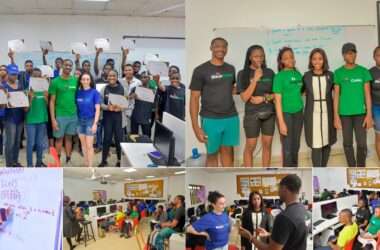
Google has been racing for over a year to develop technology that may compete with OpenAI’s eye-opening ChatGPT chatbot and has revealed its most powerful artificial intelligence.
The tech behemoth launched a new iteration of Google Bard, its own chatbot, on Wednesday, adding another leg to the continuing competition. The revamped bot, which is now available to English speakers in more than 170 territories and countries, including the US, is powered by new artificial intelligence (AI) technology dubbed Gemini, which the business has been working on since the beginning of the year.
In an interview, Google CEO Sundar Pichai declared, “This is the beginning of the Gemini era.” The goal of the company’s artificial intelligence unit, Google DeepMind, is being realised. In the upcoming months, he added, Google will integrate three distinct iterations of the technology into a broad range of goods and services.
Demis Hassabis, who is in charge of Google DeepMind, and Mr. Pichai claimed that Gemini was more potent than Google’s earlier chatbot technologies and that, in some circumstances, it might provide responses that were more accurate and more like human reasoning.
Gemini’s performance had us incredibly pleased,” Dr. Hassabis remarked.

Google was taken aback when OpenAI stunned the globe late last year with their artificial intelligence chatbot, ChatGPT. The tech company had been working on a comparable technology for years, but like other tech companies, most notably Meta, it was hesitant to disclose a tool that could provide information that was harmful, biased, or inaccurate.
Google’s own chatbot, Bard, was debuted in March to mediocre reviews. After a month, the business revealed that it has merged Google Brain and DeepMind, its two artificial intelligence labs, bringing together over 2,000 engineers and researchers. Additionally, it revealed that Gemini was now being developed by the newly established Google DeepMind unit at its main Google I/O conference in May.
Google paid $650 million buying the London-based artificial intelligence start-up DeepMind in 2014, following the establishment of the Brain lab in 2011. For ten years, DeepMind functioned mostly independently of Google’s Brain Lab and other divisions. In 2017, the business attempted to split out. However, Mr. Pichai merged the two labs under the direction of Dr. Hassabis, a neuroscientist who co-founded DeepMind, as Google strained to overtake OpenAI.
The most potent version of Gemini surpassed OpenAI’s most recent technology, GPT-4, according to benchmark test results made public by Google. Mr. Pichai stated that the technology is more accurate at summarising news stories and other text documents and is superior to earlier Google technologies at producing computer code.
The model, which is available in three versions (Gemini Nano, Gemini Pro, and Gemini Ultra), is anticipated to be incorporated into a number of Google products, such as Chrome, ad products, and search. Bard will run on Gemini Pro, while Gemini Nano will provide Pixel 8 Pro owners access to some additional offline functionality. Conversely, the Ultra is intended for use in data centres and enterprise applications, and in 2024, it will be made available via a cloud API and integrated into Bard.




